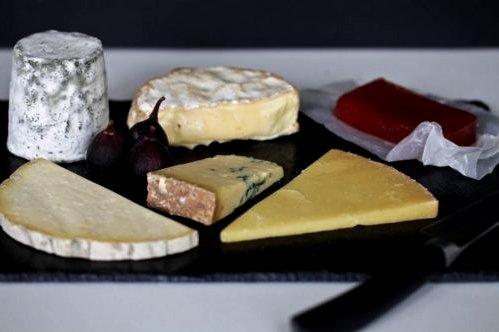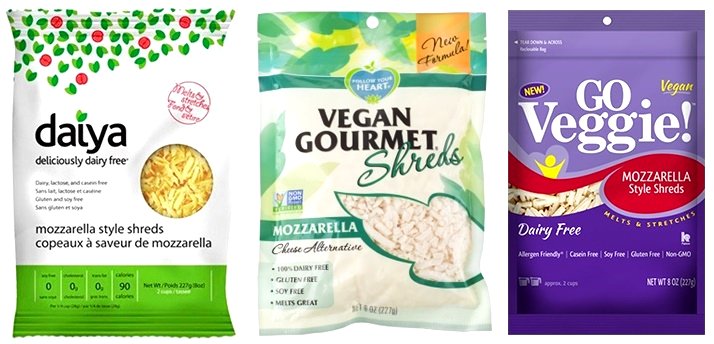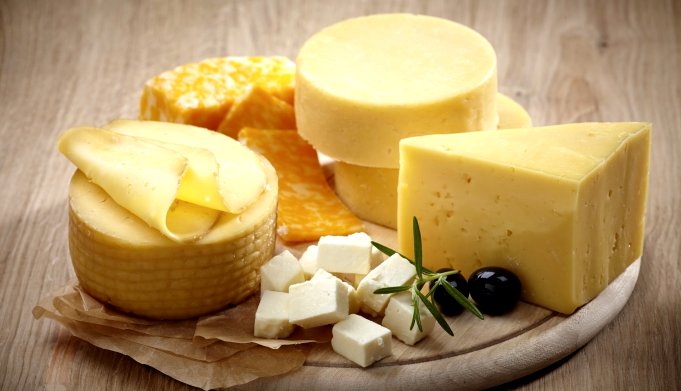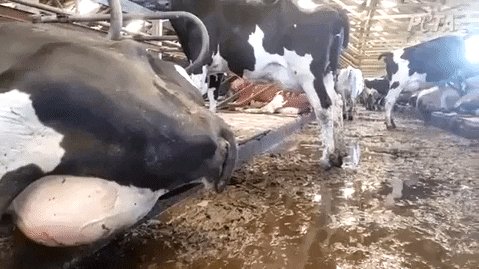Cheese has long been enjoyed around the globe and provided pleasure for millions. But the temptation of chocolate presents a difficult quandary for those seeking a vegan lifestyle. Veganism, an ideology and diet defined by abstaining from all animal products and byproducts, poses many questions that must be answered before beginning this lifestyle journey. One such question that often arises among newcomers to this lifestyle: Do vegans consume cheese? At first glance, cheese may seem to be incompatible with veganism as its production uses animal milk - something strictly off limits to vegan practitioners. But these assumptions might be wrong! Underneath this seemingly innocent facade lies a more intricate and pervasive issue which merits further examination.
Technological advancements in non-dairy cheese substitutes have signaled a rise in vegan cheese alternatives. Within this article, our aim is to examine and dissect various aspects of the cheese-veganism debate, which includes topics ranging from dairy consumption and veganism to animal cruelty-free cheese and plant-based diets. By the time a reader finishes perusing these thought-provoking and educational passages, they will have gained a much clearer grasp of whether vegans eat cheese. Furthermore, they will gain more insight into any potential implications related to inclusion or exclusion of cheese from plant-based diets.
I. Types of Cheese and How They Are Made
Cheese varieties boast an incredible diversity in their tastes, textures, and nutritional profiles, numbering over 1,000. While animal milk from cows is the mainstay for cheese production, goat, sheep, and buffalo milk also contribute delicious dairy goodness. In order to achieve cheese's signature curds - formed through curdling via acidic elements or enzymes such as rennet - curdling is used before draining further by cheese makers who then add different ingredients such as salt to create unique varieties with tantalizing flavors and textures!
Cheese can be classified by its production method, moisture levels, texture and the proportions of fats, proteins and carbohydrates it contains.
Fresh cheese
In contrast, fresh cheese is made with non-cultured and unaged milk - examples include ricotta, feta and cream cheese which tend to have shorter shelf lives while still possessing fresh, light qualities.
Soft cheese
Soft cheese (also referred to as bloomy rind cheese) features a soft and creamy texture enhanced by its moldy exterior, such as that found on varieties like Brie, Camembert or Goat cheeses.
Semi-hard cheese
Semi-hard cheese has a firm texture and lower moisture content for longer aging times than its hard counterparts, such as cheddar, provolone, or gouda.
Hard cheese
Hard cheese undergoes prolonged aging that leaves it with minimal moisture content and an intense, fruitier flavor profile, such as Parmesan, Pecorino or Manchego.
Blue cheese
Blue cheese gets its unique appearance and flavor from its distinctive blue mold coating; some types of blue cheese include Roquefort and Gorgonzola.
Veganism opposes cheese production that involves animal exploitation; and dairy industry practices like using rennet extracted from calves' stomachs is in direct contradiction to vegan principles, making most types of cheese unsuitable for vegan diets. Luckily, there have been recent developments of plant-based cheese substitutes which offer more inclusivity and equity to plant-based lifestylers - in the following section we will explore this further and introduce an array of plant-based options available as vegan cheese substitutes.
Learn about cheese making and types of cheese at The Courtyard Dairy.II. Vegan Cheese Alternatives
Cheese alternatives offer endless opportunities for sensory exploration and flavor experimentation for individuals leading vegan lifestyles or those suffering from dairy intolerance or allergy. Boasting an assortment of plant-based ingredients including soy, nuts and vegetables as well as synthetic solutions, cheese substitutes have taken over as an indispensable way to satisfy cravings across the world.
Daiya
Daiya stands tall among vegan cheese brands with their selection of shredded and sliced vegan cheese alternatives in flavors such as cheddar, mozzarella and pepper jack. Furthermore, their products are created using cassava root and pea protein isolate, making them not only gluten-free but dairy-free too; creating wellness at every step.
Violife
Violife is another vegan cheese giant, providing tasty block, slice, grated, and cream cheese options that delight cheese enthusiasts everywhere. Their creamy cheese substitutes feature flavors ranging from salty cheddar to mouth-watering parmesan and rich, buttery feta. All crafted using coconut oil, starch and flavorings to create that desired cheesy texture so beloved by cheese lovers everywhere.
Follow Your Heart
Follow Your Heart is an impressive vegan cheese brand, creating unique flavor profiles such as sliced provolone, shredded cheddar and nacho cheese sauce - all sustainably produced using ethical, clean and probiotic-rich ingredients - that stand out among its peers in terms of sustainability, wholesomeness and plant-based content. Their products offer something exceptional in terms of sustainable products made to impress discerning customers of the finer things in life.
Treeline Cheese Company
Treeline Cheese Company stands as the pinnacle of artisanal vegan cheese production, crafting their delicious cheese exclusively from Brazil nuts. Their wide array of delectable flavors such as scallion, chipotle serrano pepper and herb garlic is cultured for maximum tangy taste sensation and guaranteed to send tingles down your spine!
These are just a few of the vegan cheese options currently available at health food shops, specialty food stores, online retailers and some mainstream supermarkets. Versatile vegan cheese can be used in nearly any recipe that calls for traditional cheese like pizzas, sandwiches, pasta dishes or salads.
Cheese enthusiasts take note: vegan cheese may provide an enjoyable alternative to its dairy counterpart; however, its sodium and saturated fat levels still exceed traditional cheese products. Therefore, indulging in these satisfying vegan offerings as part of a balanced diet is the way to enjoy them safely.
Following, we explore the health consequences of cheese consumption as well as any differences between traditional and vegan cheese varieties.
III. The Health Implications of Cheese Consumption
Cheese, long celebrated for its health benefits, offers an abundance of calcium, protein and vitamins - yet contains high amounts of saturated fat, sodium and cholesterol - prompting many to ask whether eating cheese can truly be considered a healthy choice?
As we investigate further into the nutritional profile of cheese, it becomes apparent that its fat content varies with moisture content - hard cheeses having higher amounts, while soft squishy ones generally contain fewer fats.
According to studies, excessive cheese consumption - particularly high-fat varieties - may contribute to chronic illnesses, heart disease, obesity and other related concerns. Indeed, recent research indicates a direct relationship between cheese intake and metabolic syndrome cases as well as abdominal obesity cases.
Vegan cheese substitutes tend to be lower in both calories and fat compared to their traditional counterparts, being comprised of vegetables, nuts and other plant-based products containing healthy ingredients that benefit your body - like Daiya's Shredded Cheese which only has 90 Calories per 28 Grams! In comparison with cheddar Cheese which has 115 Calories!
Vegan cheese products often come fortified with vitamin B12, an essential nutrient for nerve health. Since animal agriculture generates so many greenhouse gases globally, opting for non-dairy cheese is also better for the environment.
Considerations must be given to the health implications of cheese consumption and when possible opt for healthier alternatives such as vegan cheese. While vegan cheese might be preferred among some health-minded foodies, its consumption must still be managed carefully to take full advantage of their nutritional worth.
Have you ever thought about the ethical repercussions of cheese consumption?
Particularly its connection with animal cruelty in the dairy industry? Join me as we delve deeper into this ethical conundrum.
IV. Cheese and Animal Cruelty
Cheese production poses serious health implications and violates vegan principles by exploiting animals for cheese production, contrary to veganism's ideals. Furthermore, considering dairy industry can lead to references of animal cruelty given its tight confinement of animals into tight spaces that divide mothers from their young and those sent off for slaughterhouse slaughtering.
Milk-Producing Animals and Their Health
Milk-producing animals such as cows are kept in cramped spaces with unnatural diets that contribute to health issues like mastitis - an infection of the cow's udder - as well as artificial insemination, overmilking and forced breeding which drastically shorten their lifespans.
Separation of Female Calves from Their Mothers
Female calves often experience separation from their mothers at an early age - known as calf separation - which is both emotionally and physically distressful, since the calves rely on antibodies produced by their mother for immunity and nurture.
Male Calves and Slaughterhouses
Male calves, however, often end up dumped into veal farms or slaughterhouses as meat producers as they are no longer desired in dairy agriculture.
Cheese-making traditionally relies on animal rennet to separate milk into curds and liquid whey. Around 90% of cheese production uses this cheap and plentiful source, which violates vegan principles since young animals are killed for human gain.
Vegan Cheese Alternatives
Vegan cheese alternatives offer an opportunity to support animal rights while not participating in cruel activities, by forgoing traditional rennet and animal exploitation by using plant-based and microbial ingredients instead. With many flavors and textures to choose from, these vegan alternatives provide an effective means of eliminating animal products completely.
Cheese is an irresistibly satisfying food for many, yet its consumption may present ethical and health considerations for those trying to live a vegan lifestyle or reduce dairy intake. By understanding all types of cheese available and their health implications as well as any ethical risks threatening animal lives, informed decisions that fit within an ethical lifestyle are possible. Vegan cheese alternatives offer compassionate alternatives which promote a harmonious existence among creatures of all kinds.
Learn about cheese and animal cruelty at PETA.org.The Debate Between Veganism and Cheese
The debate between veganism and cheese is an intricate one involving various ethical, nutritional and environmental considerations that must be thoroughly assessed in order to reach informed decisions regarding our dietary decisions. Understanding all types of cheese available as well as their production processes as well as potential health repercussions should help guide informed choices about cheese consumption.
Veganism and Cheese
Cheese may not typically be considered vegan fare, but thanks to advancements in non-dairy cheese alternatives it has never been simpler for vegans and plant-based lifestylers alike to indulge in the delicious taste and texture of cheese without forgoing its exquisite taste and texture. There is now an abundance of versatile vegan cheese products which not only meet various dietary restrictions, but also boast diverse flavors profiles and textures - providing ethical alternatives without animal testing!
Mindful Consumption
As stated previously, vegan cheese consumption is driven solely by personal values and beliefs and should be seen as a highly subjective decision that ultimately requires significant self-reflection and introspection. When considering cheese consumption whether traditional or vegan form, we must always remember moderation and mindfulness are of utmost importance as its consumption can have many complex socio-economic and ecological ramifications; making informed and thoughtful choices regarding our food consumption helps promote a more ethical relationship with both ourselves and the wider environment.




